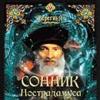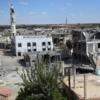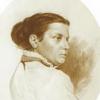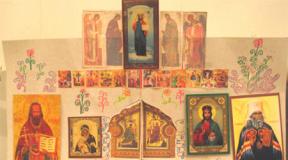A message about the poet Afanasy Afanasyevich fet. Fet, Afanasy Afanasyevich
Who is presented in this article is a Russian lyric poet, translator, and memoirist. He was born in 1820, on November 23, and died in 1892, on November 21.
The childhood of the future poet
Afanasy Afanasyevich Fet was born on a small estate located in the Oryol province, in the Mtsensk district. His biography is interesting because of the very origin of the future poet. His father worked as an assessor in the Darmstadt court, his mother, Becker Charlotte Elizabeth, left her husband in the seventh month of pregnancy and secretly left for Russia with Afanasy Shenshin. When the boy was born, he was baptized according to Orthodox custom. His name was given to him by Athanasius. He was recorded as the son of Shenshin. Charlotte Elizabeth Fet converted to Orthodoxy in 1822, after which she married Shenshin.
Studies
Fet received a good education. The capable Athanasius found his studies easy. He graduated from a private German school in 1837 in the town of Verro, located in Estonia. Already at this time, the future poet began to write poetry, and also showed interest in classical philology and literature. In order to prepare for university, after school he studied with Professor Pogodin at a boarding house. This man was a journalist, historian and writer. Afanasy Fet in 1838 entered first the law and then the philosophical faculty of the university in Moscow.
First collection of poems
While studying at the university, he became close to Apollo Grigoriev, one of the students who was fond of poetry. Together they began to attend a circle in which they studied literature and philosophy. Fet, with the participation of Grigoriev, released the first collection of his poems entitled “Lyrical Pantheon”. This book received Belinsky's approval. Gogol also noted that Fet is “an undoubted talent.” For the poet, this became a kind of blessing and inspired further creativity. His poems were published in 1842 in various publications, including such popular magazines as Moskvityanin and Otechestvennye zapiski. In 1844, Afanasy Afanasyevich Fet completed his studies at the university. His biography then continued with military service.
Military service
Afanasy Afanasyevich left Moscow in 1845 and joined a cuirassier regiment located in the south of Russia. The poet believed that military service was necessary for him in order to regain his noble title. A year later, Afanasy Afanasyevich Fet received the rank of officer. His biography was supplemented in 1853 by another important event: the aspiring poet was transferred to a guards regiment stationed near St. Petersburg. Afanasy Afanasyevich often visited the capital, met with Goncharov, Turgenev, Nekrasov, and also became close to the editors of Sovremennik, a popular magazine at that time. His military career as a whole was not very successful. Fet resigned in 1858 with the rank of headquarters captain.
Tragic love
During his years of service, Afanasy Fet experienced a tragic love that had a great influence on his work. His short biography certainly includes mention of Maria Lazic. This was the poet's beloved, a girl from a poor but good family. This circumstance became an obstacle to marriage. The lovers separated, and after some time the girl died tragically in a fire (there was also talk of suicide). The poet kept the memory of her until his death.
Marriage to Maria Botkina
At the age of 37, Afanasy Fet married the daughter of a tea merchant from a wealthy family, Maria Botkina. She was not distinguished by her beauty and youth. This marriage was of convenience. Before the wedding, the poet told the bride about his origins, and also mentioned a family curse, which, in his opinion, could become an obstacle to marriage (read about it below). However, these confessions did not frighten Maria Botkina, and in 1857 the wedding took place. Afanasy Fet retired a year later.
The (short) biography of these years of his life is as follows. The poet settled in Moscow, where he began to study literature. The family life of Afanasy Afanasyevich was prosperous. He increased the fortune of Maria Botkina. This couple had no children. Afanasy Fet was elected justice of the peace in 1867. He lived on his estate like a real landowner. The poet began to work with renewed vigor only after the return of all the privileges of a hereditary nobleman and his stepfather's surname.
Fet's creativity

Afanasy Afanasyevich Fet left a significant mark on Russian literature. A short biography includes only his main creative achievements. Let's talk about them. The collection "Lyrical Pantheon" was published while still studying at the university. Fet's first poems were an attempt to escape from difficult reality. He wrote a lot about love and sang the beauty of nature in his works. Even then, one characteristic feature appeared in his work: Afanasy Afanasyevich spoke about eternal and important concepts only in hints, he was able to skillfully convey various shades of mood, awakening bright and pure emotions in readers.

"Mascot"
Fet's work took on a new direction after the death of Maria Lazic. Afanasy Afanasyevich Fet dedicated a poem called “The Talisman” to his beloved. A short biography of this girl will be presented at the end of this article, when we will tell you about some interesting facts from the life of the poet. Researchers suggest that all subsequent poems by Afanasy Afanasyevich about love were dedicated to her. "Talisman" aroused keen interest from critics and many positive reviews. Fet at this time was recognized as one of the best poets of our time.
Afanasy Afanasyevich was considered one of the representatives of the so-called pure art. That is, in his works he did not touch upon important social issues, remaining until the end of his life a convinced monarchist and conservative. Fet in 1856 released his third collection of poetry, in which he praised beauty. It was this that he considered the main and only goal of creativity.
The heavy blows of fate did not pass without a trace for the poet. Afanasy Afanasyevich became bitter, broke off relations with many friends, and practically stopped creating. The poet published a two-volume collection of his works in 1863, and then there was a 20-year break in his work.
"Evening Lights"

Only after returning the privileges of a hereditary nobleman and his stepfather’s surname did he take up creativity with renewed vigor. Towards the end of his life, the works of Afanasy Fet acquired an increasingly philosophical tone; so-called metaphysical realism was present in them. Afanasy Fet wrote about the unity of man with the entire Universe, about eternity, about the highest reality. Afanasy Afanasyevich wrote in the period from 1883 to 1891 more than three hundred different poems, included in the collection called “Evening Lights”. This collection went through four editions during the poet’s lifetime, and the fifth was published after his death.
Death of Afanasy Fet

The great poet died of a heart attack. However, researchers of his work and life are convinced that before his death he attempted to commit suicide. But it is impossible to say for sure whether the life of such a person as Afanasy Fet was marked by this episode. His biography and interesting facts about him sometimes cause controversy among researchers. Some of them are still recognized by the majority as reliable.
- When the future poet was 14 years old (in 1834), it turned out that he was not legally the son of Shenshin, a Russian landowner, and this was recorded illegally. An anonymous denunciation made by an unknown person became the reason for the proceedings. The decision sounded like a verdict: Afanasy must henceforth bear his mother’s surname, and he was also deprived of Russian citizenship and the privileges of a hereditary nobleman. Suddenly, from a wealthy heir, he turned into a man with no name. Fet perceived this event as a shame. It became an obsession for him to regain his lost position. His dream came true only in 1873, when Fet was already 53 years old.
- The fate of such a poet as Afanasy Afanasyevich Fet was marked by a heavy burden. Biography for children about him usually does not mention this. For the poet there was a danger of one birth illness. The fact is that there were crazy people in his family. Already in adulthood, Fet's two brothers lost their minds. Towards the end of her life, his mother also suffered from insanity. This woman begged everyone to kill her. Sister Nadya, shortly before Afanasy Afanasyevich’s marriage to Maria Botkina, also ended up in a psychiatric clinic. Her brother visited her there, but Nadya did not recognize him. Afanasy Fet often noticed attacks of severe melancholy in himself, whose biography and work confirm this. The poet was always afraid that he would suffer the same fate as his relatives.

- In 1847, during his military service in Fedorovka, the poet met a girl named Maria Lazich. Afanasy Afanasyevich Fet loved her very much. His biography and work were largely influenced by this meeting. The relationship between the lovers began with light flirting, which gradually grew into a deep feeling. However, the beautiful, well-educated Maria could not yet become a good match for Fet, who hoped to regain the title of nobleman. Realizing that he truly loved this girl, the poet nevertheless decided that he would not marry her. The girl reacted calmly to this, but decided after a while to break off relations with Fet. After this, the poet was informed about the tragedy in Fedorovka. A fire broke out in Maria's room and her clothes caught fire. The girl, trying to escape, ran first onto the balcony and then into the garden. However, the wind only fanned the flames. Maria Lazic had been dying for several days. This girl's last words were about Fet. The poet suffered this loss hard. Until the end of his life, he regretted that he did not marry Maria. His soul was empty, and there was no longer true love in his life.

So, you met such a poet as Afanasy Afanasyevich Fet. Biography and creativity were briefly presented in this article. We hope that this information made the reader want to get to know the great poet better. The poetry of the so-called new classicism was marked by the work of such an author as Fet Afanasy Afanasyevich. Biography (full) presented by Bukhshtab B.Ya. The book is called "A. A. Fet. Essay on life and creativity." Through this work you can become more familiar with such a great Russian poet as Afanasy Afanasyevich Fet. The biography by dates is given in some detail.
It begins simply with Shakespeare's passions. His father, a wealthy nobleman Afanasy Neofitovich Shenshin, a 45-year-old man of the hussar type, a former captain, while undergoing treatment in Germany, fell madly in love with the 20-year-old mother of the future poet, Charlotte Fet. This passion was not hindered by the fact that the lady was married, or that she already had a daughter, or that the lady was pregnant with Afanasy...
The boy was born in December 1820. Fet's biography contains a period of happy childhood on his father's Oryol estate in the village. Novoselki.
About the Shenshin-Fetov family
In fact, the biological father of Afanasy Feth is Johann-Peter-Karl-Wilhelm Feth, assessor of the Darmstadt city court. The blood sister remained in Germany.
Two children of Charlotte Fet and Afanasia Shenshina (Anna and Vasily) died in infancy. The poet had a half-sister, Lyuba, born in 1824.
Offended by the kidnapping of his wife, his biological German father deprived Afanasy of his inheritance.
Illegitimate son status
The carefree period of childhood of the future poet on the Shenshin estate lasted up to 14 years, until the Orthodox (diocesan) authorities, exercising, as they now say, legal supervision, discovered that the date of the parents’ wedding (1822) was later than the date of birth of the child. This entailed significant legal consequences for Afanasy. Fet's biography contains information that the young man suffered deeply from his special status as an “illegitimate.”
The chronological table testifies to the rhythm of life imposed on him. Fet Afanasy Afanasyevich, on the one hand, was attracted by poetry, and on the other, by the duty of returning noble privileges to his offspring.
Dates | Events |
In the village of Novoselki, a son, Afanasy, was born into the landowner family of the Shenshins. |
|
Studying at the Krommer boarding house in the Finnish city of Verro |
|
Professor Pogodin's boarding house |
|
Studying at the Department of Literature of Moscow University |
|
Service in the cuirassier regiment in Kherson province |
|
First collection of poetry |
|
Second collection of poems |
|
Fet becomes a local nobleman and lives on an estate in Stepanovka |
|
The most productive period of creativity (in the village of Vorobyovka) |
|
1883, 1885, 1888, 1891 | Years of publication of cycles of the poet's best poems |
Death from an asthma attack |
Very many milestones of his life - with honor he overcame limitations in education, forced military service, marriage to an unloved woman, becoming a hermit in the village - were clearly not part of his original plans. Such stages of life do not make a person happy... All this, unfortunately, affected the poet’s health. The years of Fet's life could cover a larger period of time.
Adversity changed the poet's character
Perhaps this state of internal suffering was the reason for the birth in his soul of lyrics of the highest level, a crystal clear style of poetry.

He could not bear his father’s surname, was not a Russian subject, and, accordingly, did not inherit the rights of the nobility. His last name was Fet, and the young man was considered a German subject. Everything that his brothers and sisters received by birth, he should have earned. This is how the vigilance of the spiritual fathers-clerks made the poet’s subsequent life miserable. He entered the rights of the nobility only at the age of 50! Therefore, literary scholars emphasize: Fet’s dull, gloomy biography and his clear, watercolor poetic heritage are deeply contrasting. The severe psychological trauma caused by the inhumanity of the law determined the difficult character of this most talented person.
Education
Unlike the rest of the Shenshins, Afanasy Afanasyevich Fet received a good education. Hard work and a predisposition to science did their job... Being a German subject, he was forced to begin studying in a Protestant German boarding school. However, he owes his knowledge of Latin and classical philology to the teachers of this institution. It was here that his first poems were written.
The beginning of creativity
The young man had a dream - to study at Moscow University. Professor Pogodin's boarding school served as a stepping stone to this admission.

Since 1838, Afanasy Afanasyevich Fet has been a student in the literature department of the university he coveted. This is where his long-term friendship with the future poet and critic Apollon Grigoriev originated. Here, in 1840, Fet wrote his first collection of poems, “The Lyrical Pantheon.” In the works of the aspiring poet, one could feel the imitation of Venediktov and Pushkin. Fet's early lyrics are published in the magazines Otechestvennye zapiski and Moskvityanin. Fet longs for recognition, thanks to which he hopes to regain his noble title. However, Fet's early lyrics do not bring success adequate to such a dream.
Then the active young man acts in accordance with “plan B” - he receives a noble title after military service.
The poet serves in the army
He serves in the cuirassier regiment, which is stationed in the Kherson province.
At this time, the beginning of his personal drama began. An unknown, frankly poor young man has a serious feeling for Maria Lazic, the daughter of a small nobleman. Moreover, this feeling is mutual (and, as it turned out, for life.) However, the destructive complex that has developed in Athanasia “returning the nobility above all else” prevents marriage and the creation of a happy family... Maria died untimely, while still young, leaving her lover with memories and regrets .

Afanasy Fet, whose original poetic gift began to manifest itself, calls the years of service impartially: “conclusion.” The first resounding success accompanied his poems, published in 1850. The poet is recognized by the creative elite. He meets and becomes familiar with Nekrasov, Druzhinin, and Leo Tolstoy. His works are finally expected and loved. However, Afanasy Fet, a poet from God, is still moving towards his creative heights. A new collection of poetry, published in 1856, is only a milestone on this path.
Marriage, landowner status
He never earned the title in the army, although he rose to the rank of captain (which corresponds to the modern rank of captain, and to regain the title, according to the logic of his military career, Fet should have become a colonel).
However, by this time the life of Afanasy Afanasyevich had changed dramatically. Returning to civilian life, he married Botkina, the sister of a famous literary critic. This marriage was, rather, carried out by him out of calculation rather than out of love. Thus, Fet Afanasy Afanasyevich became close to a wealthy merchant family and drew the line of poverty. Fate becomes favorable to him. The royal decree recognizes his right to his father's inheritance, and he is also given the surname Shenshin. The poet calls this event the most joyful in his life. He had been waiting for this for many years.

However, fans of his work are still interested in the question: “Why did the famous poet decide to marry for convenience?” No direct answer was found in his diaries. In any case, this is a matter of personal choice: to choose family life, secretly suffering from a failed marriage with a loved one... Perhaps he was tired of fighting a society that limited his rights, and decided to finally find peace, since he did not have happiness in love. This characterization of Fet has a basis. However, he will remember his deceased beloved Maria Lazic until his death, dedicating poems to her.
Fet is an active landowner
In 1860, with his wife’s capital, he bought the Stepanovka farm, where he farmed almost continuously for 17 years. Fet the landowner owns two hundred souls on the farm. He is completely immersed in organizing and running the household. There is practically no time left for creativity. He becomes a “convinced and tenacious Russian agrarian.” Afanasy Afanasyevich, devoting a lot of time and effort to a new business for himself and distinguished not only by his poetic gift, but also by his worldly wisdom, achieves respect in society. Evidence of recognition is his performance as a justice of the peace.

The efficient management of Feta the landowner contributed to the capitalization of the funds he earned in agricultural production. He actually earned his wealth through his labor.
The most fruitful period of creativity
In 1877, the poet entered a new, most fruitful period of his work. His poetic style has been developed, and his tormented soul longs to plunge into the ocean of pure poetry. Fet's history goes back to its last highest stage, which brought him the fame of an incomparable lyricist. It is in order to isolate himself from the busy world and focus on high creativity that Afanasy Afanasyevich buys the Kursk village of Vorobyovka, where he spends the warm season. For the winter, the poet always returned to his Moscow mansion. The life of Afanasy Fet, starting from this milestone, was entirely devoted to poetry.
This period of creativity turned out to be the most productive. Fet's chronological table shows the dynamics of his writing of collections: 1883, 1885, 1888, 1891... It is noteworthy that all these collections of poems, written over the course of a decade, are combined into the general cycle “Evening Lights”.
Fet's poetry is unique
All of Afanasy Afanasyevich’s poetry, presented in the author’s collections, can be roughly grouped into three main themes: nature, love, art. He devoted his poetic activity only to these subjects. Fet's lyrics are simple and bright, they are truly written for all times. A reader who wants to find in his poems associations encountered in his own life will certainly find them: in the majestic landscape of the forest, the life-giving sound of rain, in the joyful portal of the rainbow. Composer Tchaikovsky compared his poetry to music. According to many critics, the richness of the poetic palette achieved by Afanasy Fet in describing nature was not achieved by any of his colleagues. Fet's muse is special: simple and graceful, calmly gliding on her wings above the ground, captivating readers with her lightness and grace.

The poet developed a harmonious principle in his work, fundamentally dissociating himself from “mental weather,” anxiety, conflicts and injustice. The poet called his artistic style “the mind of the heart.”
Instead of a conclusion
The years of Fet's life are 1820-1892. A year before his death, his literary research was “highly” appreciated. Fet was granted the rank of chamberlain (a high rank of court rank, roughly equivalent to a major general).
However, the poet’s health was already failing... He had no time for palace careers... He died during an asthmatic attack. Fet Afanasy Afanasyevich was buried in the Oryol family estate, located in the village of Kleymenovo.
To summarize the above, it is worth mentioning the influence of Afanasy Afanasyevich’s work on the generation of symbolist poets: Balmont, Blok, Yesenin. He is undoubtedly the founder of the Russian school of pure art, fascinating with its sincerity.
The great Russian lyricist A. Fet was born on December 5, 1820. But biographers doubt not only the exact date of his birth. The mysterious facts of their true origin tormented Fet until the end of his life. In addition to the absence of a father as such, the situation with the real surname was also unclear. All this shrouds Fet’s life and work in a certain mystery.
Fet's parents
According to the official version, the Russian nobleman Afanasy Neofitovich Shenshin, while undergoing treatment in the German city of Darmstadt, settled in the house of Oberkrieg Commissioner Karl Becker. After some time, a retired army officer becomes interested in the owner's daughter, Charlotte. However, Charlotte at that time was no longer free and was married to a petty German official, Karl Feth, who also lived in Becker’s house.
Despite these circumstances and even the fact that Charlotte has a daughter from Fet, a whirlwind romance begins. The lovers' feelings were so strong that Charlotte decided to escape with Shenshin to Russia. In the fall of 1820, Charlotte, leaving her husband and daughter, left Germany.

Mother's protracted divorce
An outline of Fet's life and work is impossible without a story about the relationship of his parents. Already in Russia, Charlotte dreams of an official divorce from Karl Fet. But divorce in those days was a rather lengthy process. Some biographers claim that because of this, the wedding ceremony between Shenshin and Charlotte took place two years after the birth of little Afanasy, their common son. According to one version, Shenshin allegedly bribed the priest in order to give the boy his last name.
Probably, it was this fact that influenced the poet’s entire life. Violations of this kind were treated quite strictly in the Russian Empire. However, all sources confirm the fact of the wedding of Shenshin and Charlotte, who later took the name Shenshin.
From nobles to paupers
Getting acquainted with the biography of the lyricist, you involuntarily ask yourself the question of what influenced Fet’s life and work. It is difficult to find out all the details down to the smallest detail. But the main milestones are quite accessible to us. Until the age of 14, little Afanasy considered himself a hereditary Russian nobleman. But then, thanks to the hard work of judicial officials, the secret of the child’s origin was revealed. In 1834, an investigation was launched into this case, as a result of which, by a decree of the Oryol provincial government, the future poet was deprived of the right to be called Shenshin.
It is clear that the ridicule of his recent comrades immediately began, which the boy experienced quite painfully. In part, this was what contributed to the development of Fet’s mental illness, which haunted him until his death. However, what was much more important was that in this situation he not only did not have the right to inheritance, but in general, judging by the documents presented from the archives of that time, he was a person of no confirmed nationality. At one point, a hereditary Russian nobleman with a rich inheritance turned into a beggar, a person of no use to anyone except his mother, without a surname, and the loss was so great that Fet himself considered this event to have disfigured his life to the point of his deathbed.
Foreigner Fet
One can imagine what the poet’s mother went through, begging the court’s tricksters for at least some kind of certificate about the origin of her son. But it was all in vain. The woman took a different route.
Remembering her German roots, she appealed to the pity of her former German husband. History is silent about how Elena Petrovna achieved the desired result. But he was. Relatives sent official confirmation that Afanasy is the son of Fetu.
So the poet at least got a last name, Fet’s life and work received a new impetus in development. However, in all the circulars he still continued to be called “foreigner Fet.” The natural conclusion from this was complete disinheritance. After all, now the foreigner had nothing in common with the nobleman Shenshin. It was at this moment that he was overcome by the idea of regaining his lost Russian name and title by any means.
First steps in poetry
Afanasy enters the Faculty of Literature at Moscow University and is still referred to in the university forms as “foreigner Fet.” There he meets the future poet and critic. Historians believe that Fet’s life and work changed at this very moment: it is believed that Grigoriev discovered Afanasy’s poetic gift.
Soon Feta comes out - “Lyrical Pantheon”. The poet wrote it while still a university student. Readers highly appreciated the young man's gift - they did not care what class the author belonged to. And even the harsh critic Belinsky repeatedly emphasized the poetic gift of the young lyricist in his articles. Belinsky's reviews, in fact, served Fet as a kind of passport into the world of Russian poetry.

Afanasy began to publish in various publications and within a few years he prepared a new lyric collection.
Military service
However, the joy of creativity could not cure Fet’s sick soul. The thought of his true origin haunted the young man. He was ready to do anything to prove it. In the name of a great goal, Fet immediately after graduating from university enlists in military service, hoping to earn nobility in the army. He ends up serving in one of the provincial regiments located in the Kherson province. And immediately the first success - Fet officially receives Russian citizenship.
But his poetic activity does not end; he still continues to write and publish a lot. After some time, the army life of the provincial unit makes itself felt: Fet’s life and work (he writes poetry less and less) become more and more gloomy and uninteresting. The craving for poetry is weakening.
Fet, in personal correspondence, begins to complain to friends about the hardships of his current existence. In addition, judging by some letters, he is experiencing financial difficulties. The poet is even ready to do anything just to get rid of the current oppressive physically and morally deplorable situation.

Transfer to St. Petersburg
Fet's life and work were quite gloomy. Briefly summarizing the main events, we note that the poet pulled the soldier's burden for eight long years. And just before receiving the first officer rank in his life, Fet learns about a special decree that raised the length of service and the level of army rank for receiving the rank of nobility. In other words, nobility was now granted only to a person who received a higher officer rank than Fet had. This news completely demoralized the poet. He understood that he was unlikely to reach this rank. Fet's life and work were again reshaped by someone else's grace.
A woman with whom he could connect his life for convenience was also not on the horizon. Fet continued to serve, falling more and more into a depressed state.
However, luck finally smiled on the poet: he managed to transfer to the Guards Life Lancer Regiment, which was stationed not far from St. Petersburg. This event happened in 1853 and surprisingly coincided with a change in society's attitude towards poetry. Some decline in interest in literature, which emerged in the mid-1840s, passed.
Now, when Nekrasov became the editor-in-chief of the Sovremennik magazine and gathered the elite of Russian literature under his wing, the times clearly contributed to the development of any creative thought. Finally, the second collection of Fet’s poems, written long ago, was published, which the poet himself had forgotten about.
Poetic confession
The poems published in the collection made an impression on poetry connoisseurs. And soon such well-known literary critics of the time as V.P. Botkin and A.V. Druzhinin left rather flattering reviews of the works. Moreover, under pressure from Turgenev, they helped Fet release a new book.
In essence, these were all the same previously written poems from 1850. In 1856, after the release of a new collection, Fet’s life and work changed again. Briefly speaking, Nekrasov himself drew attention to the poet. Many flattering words addressed to Afanasy Fet were written by the master of Russian literature. Inspired by such high praise, the poet develops vigorous activity. He is published in almost all literary magazines, which undoubtedly contributed to some improvement in his financial situation.

Romantic interest
Fet's life and work gradually filled with light. His most important desire - obtaining a noble title - was soon to come true. But the next imperial decree again raised the bar for obtaining hereditary nobility. Now, in order to gain the coveted rank, it was necessary to rise to the rank of colonel. The poet realized that it was simply useless to continue to pull the hated burden of military service.
But as often happens, a person cannot help but be lucky in absolutely everything. While still in Ukraine, Fet was invited to a reception with his friends Brzhevsky and on a neighboring estate he met a girl who would not leave his mind for a long time. This was the gifted musician Elena Lazich, whose talent amazed even the famous composer who was then touring Ukraine.
As it turned out, Elena was a passionate fan of Fet’s poetry, and he, in turn, was amazed by the girl’s musical abilities. Of course, it is impossible to imagine Fet’s life and work without romance. The summary of his romance with Lazic fits into one phrase: the young people had tender feelings for each other. However, Fet is very burdened by his dire financial situation and does not dare to take a serious turn of events. The poet tries to explain his problems to Lazic, but she, like all girls in such a situation, does not understand his torment well. Fet directly tells Elena that there will be no wedding.
Tragic death of a loved one
After that, he tries not to see the girl. Leaving for St. Petersburg, Afanasy realizes that he is doomed to eternal spiritual loneliness. According to some historians studying his life and work, Afanasy Fet wrote too pragmatically to his friends about marriage, about love and about Elena Lazich. Most likely, the romantic Fet was simply carried away by Elena, not intending to burden himself with a more serious relationship.
In 1850, while visiting the same Brzhevskys, he did not dare to go to the neighboring estate to dot all the i’s. Later Fet very much regretted this. The fact is that Elena soon died tragically. History is silent whether her terrible death was a suicide or not. But the fact remains: the girl burned alive on the estate.
Fet himself found out about this when he once again visited his friends. This shocked him so much that until the end of his life the poet blamed himself for Elena’s death. He was tormented by the fact that he could not find the right words to calm the girl down and explain his behavior to her. After Lazic’s death, there were many rumors, but no one ever proved Fet’s involvement in this sad event.
Marriage of convenience
Fairly judging that in the army he is unlikely to achieve his goal - a noble title, Fet takes a long leave. Taking with him all the accumulated fees, the poet sets off on a trip to Europe. In 1857, in Paris, he unexpectedly married Maria Petrovna Botkina, the daughter of a wealthy tea merchant, who, among other things, was the sister of the literary critic V.P. Botkin. Apparently, this was the same arranged marriage that the poet had dreamed about for so long. Contemporaries very often asked Fet about the reasons for his marriage, to which he responded with eloquent silence.

In 1858, Fet arrived in Moscow. He is again overcome by thoughts about the scarcity of finances. Apparently, his wife's dowry does not fully satisfy his requirements. The poet writes a lot and is published a lot. Often the quantity of works does not correspond to their quality. This is noticed by both close friends and literary critics. The public also seriously cooled towards Fet’s work.
landowner
Around the same time, Leo Tolstoy left the bustle of the capital. Having settled in Yasnaya Polyana, he tries to regain inspiration. Fet probably decided to follow his example and settle on his estate in Stepanovka. Sometimes they say that Fet’s life and work ended here. Interesting facts, however, were also found in this period. Unlike Tolstoy, who really found a second wind in the provinces, Fet increasingly abandons literature. He is now passionate about the estate and farming.

It should be noted that as a landowner he really found himself. After some time, Fet increases his holdings by purchasing several more neighboring estates.
Afanasy Shenshin
In 1863, the poet published a small lyric collection. Even despite the small circulation, it remained unsold. But the neighboring landowners assessed Fet in a completely different capacity. For about 11 years he held the elected position of justice of the peace.
The life and work of Afanasy Afanasyevich Fet were subordinated to the only goal towards which he moved with amazing tenacity - the restoration of his noble rights. In 1873, a royal decree was issued that put an end to the poet’s forty-year ordeal. He was fully restored to his rights and legitimized as a nobleman with the surname Shenshin. Afanasy Afanasyevich admits to his wife that he does not even want to say out loud the surname Fet, which he hates.



















